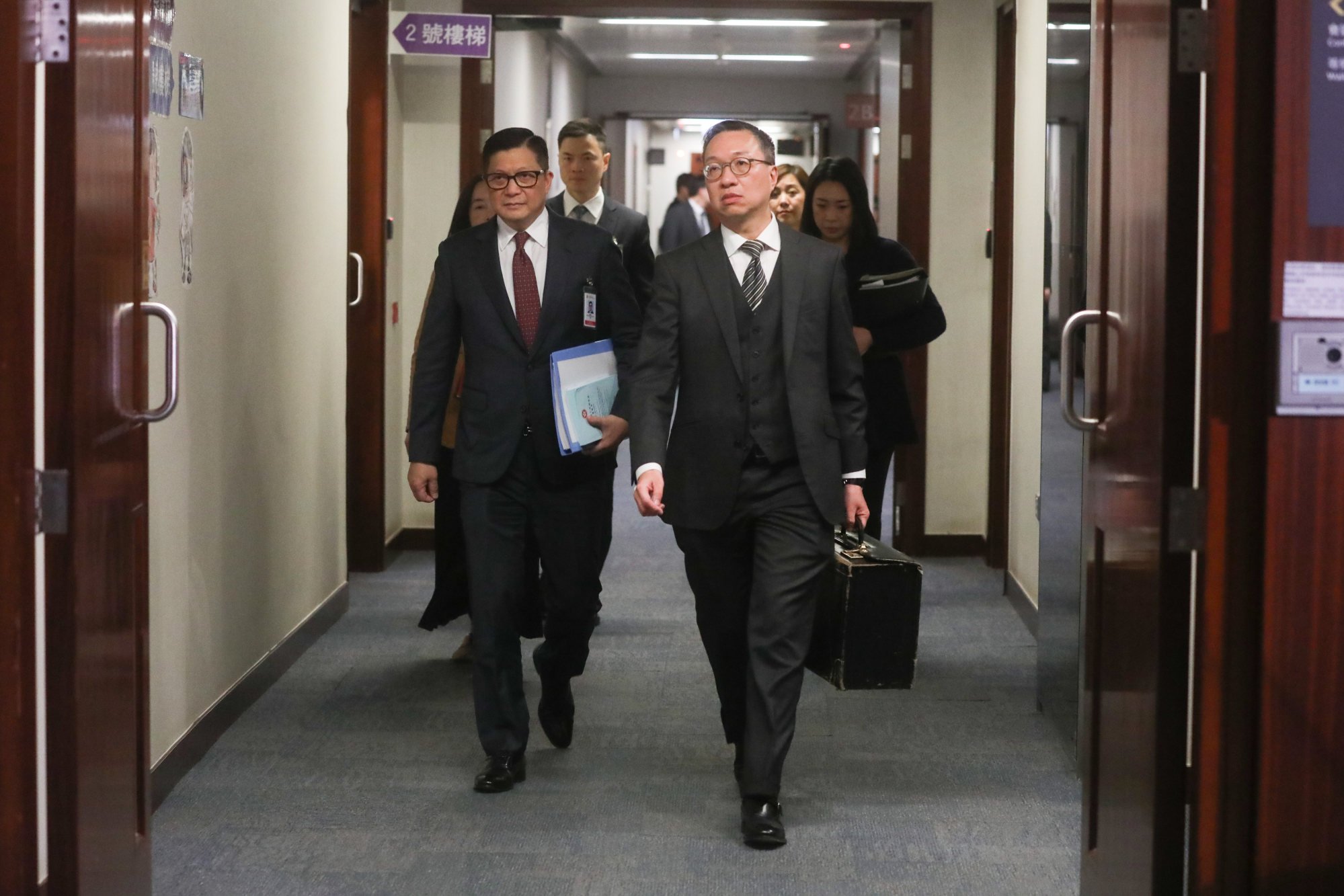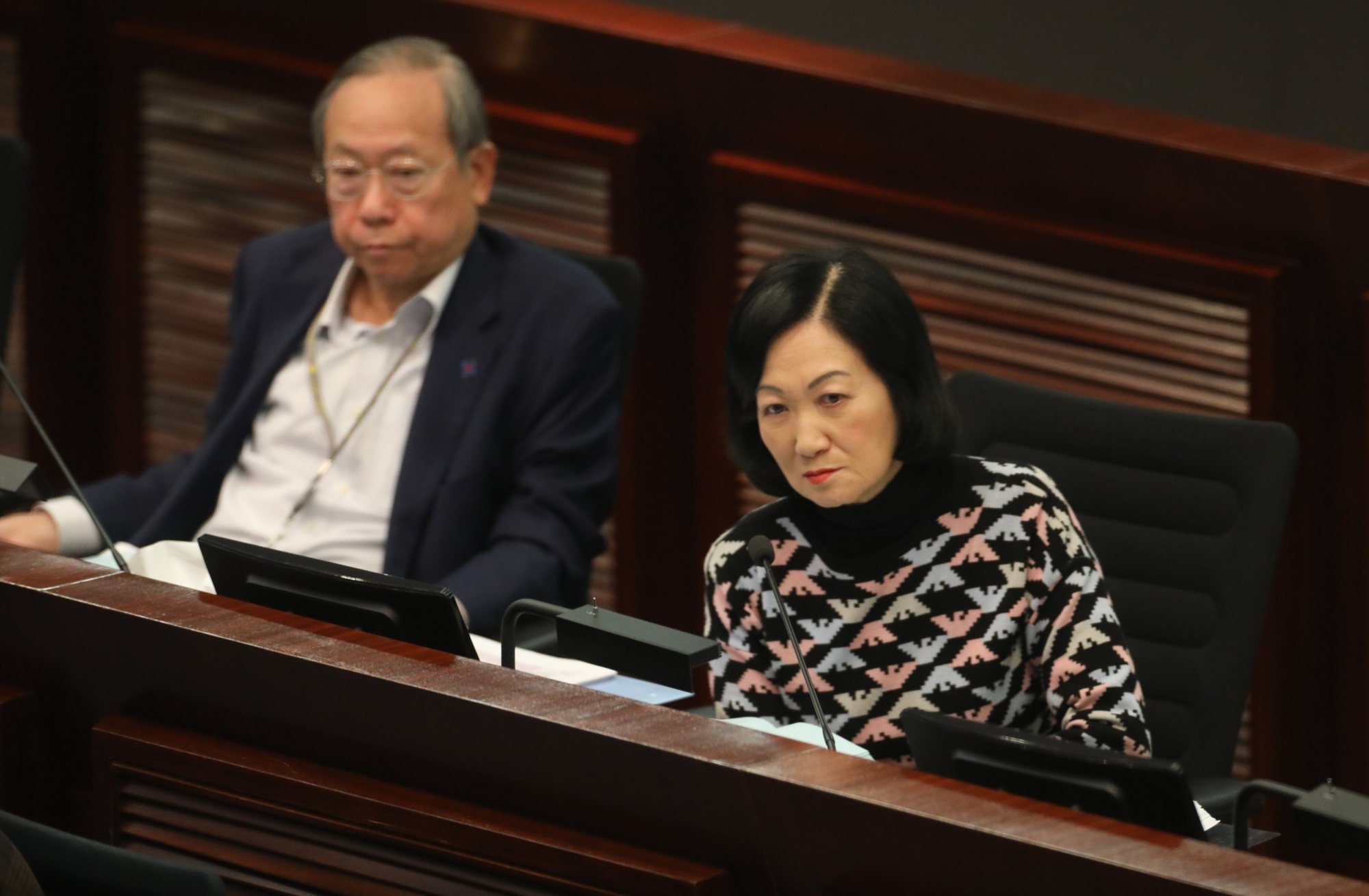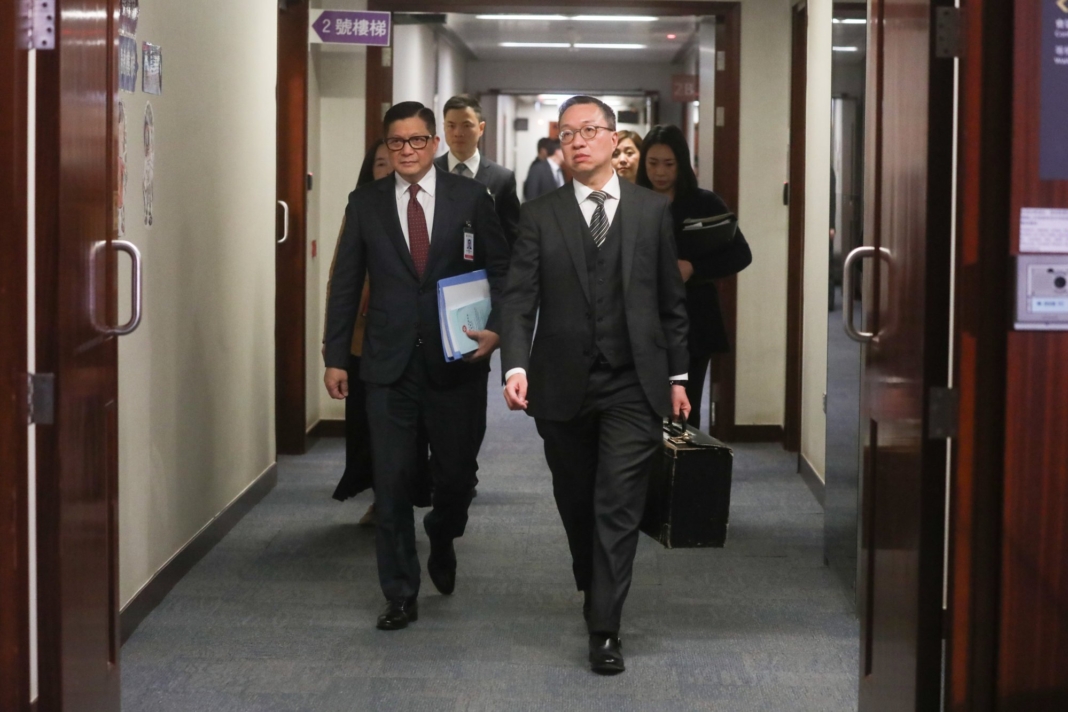One of the amendments includes a clause that empowers the chief executive in council – the city leader acting after consulting the key decision-making Executive Council – to make subsidiary legislation for safeguarding national security.

New offences under such subsidiary legislation could result in a maximum penalty of seven years in jail and a HK$500,000 (US$63,910) fine.
The government explained that the suggested change was based on lawmakers’ comments during the scrutiny of the bill, so as to “deal with unforeseen circumstances” in the future.
Authorities suggested redefining “public officers” regarding offences related to incitement to disaffection or state secrets.
Apart from officials, Executive Council members, lawmakers and government contractors, the amendments recommended adding “some” staff members of public organisations, as they “may have a greater chance to gain access to state secrets”.
Radio Free Asia may quit Hong Kong as Article 23 law expected to come into force
Radio Free Asia may quit Hong Kong as Article 23 law expected to come into force
The government proposed that the chief executive in council may, by order published in the gazette, specify a class of people as public officers if he considers it is necessary, in another move that would empower the executive branch.
Another amendment included renaming the offence of “external interference” by adding “endangering national security” after it to highlight any crime linked to improper means be separated from “normal international exchanges”, including those in areas such as commerce, academics and culture.
Authorities emphasised that the amendments aim “to highlight the nature of endangering national security of the offence of external interference”.
The government also defined “international organisation” as consisting of two or more countries, regions, places, or entities entrusted with a function, up from the previous one.

Earlier at the vetting process, Exco convenor Regina Ip Lau Suk-yee criticised the bill’s definitions of external forces as “very problematic” and “very broad”, questioning how an organisation with members from just one “place” could be considered an “international organisation” and thus be deemed an “external force”.
Foreign media outlets, meanwhile, also ran stories and commentaries calling the bill “very vague”, with one saying the city leader could ban companies from operating in the city if they were found to be “working for foreign forces”, prompting the security minister to hit back.
Under the latest changes, a suspect can be labelled an absconder immediately after a court warrant is issued after a six-month wait requirement was removed. The change was made after lawmakers said the security chief should be given maximum flexibility to deal with absconders.
Hong Kong’s Article 23 bill could be law just days after review of clauses ends
Hong Kong’s Article 23 bill could be law just days after review of clauses ends
The amendments were submitted hours after lawmakers finished a review of its 181 clauses in a series of marathon meetings, opening up the possibility of the legislation being passed in days.
Lawmakers started scrutinising the national security bill once it was gazetted last Friday.
The domestic national security legislation is designed to target five types of offences: treason; insurrection; theft of state secrets and espionage; sabotage endangering national security; and external interference.
It is mandated under Article 23 of the Basic Law, the city’s mini-constitution, and will complement the 2020 Beijing-imposed national security law.
Source: scmp.com



